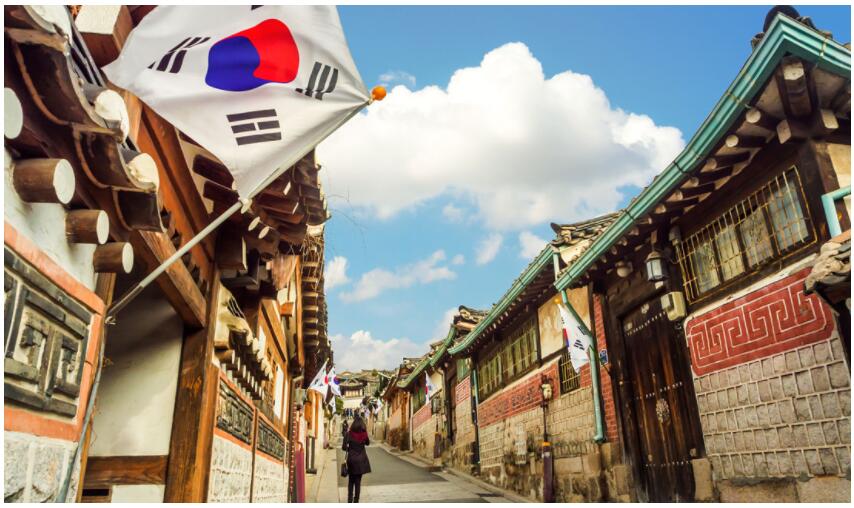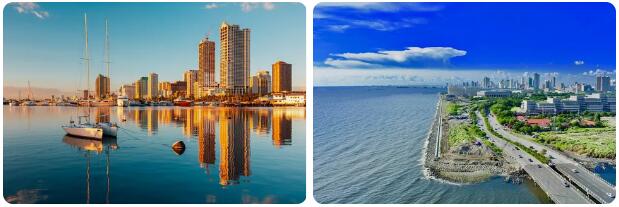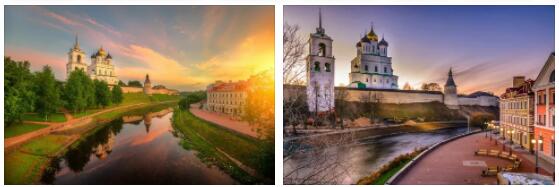Before the trip to South Korea
Passport, visa and customs
Swedish citizens do not need a visa to stay in South Korea for up to 90 days. The passport must not be cracked or have broken sides and must be valid for the entire trip and contain at least 2 unstamped sides.
Vaccinations and health
South Korea has good healthcare. No compulsory vaccinations are required for entry into Korea, but feel free to consult the vaccination center or your local health center for advice well in advance of departure about which vaccinations might be relevant to you. Make sure you have insurance that covers care in Korea as well as repatriation in the event of a more serious accident / illness. Bring your insurance documents with you during the trip. If you are taking medicines with you, these should be stored in their original packaging so that it is clear what kind of medicine it is. When carrying prescription drugs, you should bring a certificate from your doctor in English to pack it together with the medicines in your hand luggage. Avoid drinking tap water and choose bottled water instead.
Currency and exchange rate
The local currency is the Won. Bring a sum of cash USD and exchange on the spot. There are ATMs where you can withdraw cash with your Visa or MasterCard. Look out for the text “Global” or the Visa and MasterCard symbols as not all machines accept international cards. In larger hotels and restaurants in the cities, payment by card is accepted, otherwise cash is most acceptable.
Climate table for Seoul
| Seoul | Jan | Feb | Mar | Apr | May | Jun | Christmas | Aug | Sep | Oct | Nov | Dec |
| Max ° C | 8 | 5 | 12 | 17 | 21 | 24 | 28 | 29 | 26 | 20 | 15 | 11 |
| Min ° C | -8 | -3 | 2 | 8 | 13 | 18 | 22 | 22 | 17 | 10 | 3 | -3 |
| Precipitation etc. | 21 | 25 | 47 | 65 | 106 | 123 | 395 | 364 | 169 | 52 | 53 | 22 |
Security
South Korea is generally considered a safe destination.
Weather and clothing
South Korea has four distinct seasons. It is perfectly possible to visit Korea all year round, but many believe that the best time to visit South Korea is in the spring and early summer (April to June) and in the autumn (September to November). The winter is quite cold with low humidity and the summer hot with high humidity. From the end of June to the end of July, the monsoon season falls. Bring a pair of comfortable shoes as our trips to Korea include many walks.
Transport and communications
The infrastructure in South Korea is very well developed with efficient rail connections with frequent departures. The same applies to the bus lines and metro systems in Seoul and Busan. The road networks are in good condition, but traffic jams can occur, especially in the larger cities. 3G phones work in South Korea. Local CDMA telephones can be rented at Incheon Airport Arrivals Hall. In some of the phones you can use Swedish SIM cards.
Food and drinks
Korean cuisine shares some commonalities with other East Asian cuisines. For example, soy-based food products such as soy and tofu are found in many dishes and, as in China and Japan, rice is eaten with meals. However, what distinguishes Korean cuisine is the often spicy food that is flavored with a lot of garlic and red chili. A traditional Korean meal is not complete without kimchi, a kind of pickled and fermented vegetables, mainly Chinese cabbage. During your stay you will miss the dishes naengmyeon (cold noodles), bulgogi (grilled marinated meat), chijimi (a kind of vegetable pancake) and bibimbap (a rice, meat and vegetable dish prepared in an iron pot). The traditional alcoholic beverage above all others is soy which is made from rice, barley or sweet potatoes and comes in a variety of varieties and alcohol strengths.
Shopping Gifts
South Korea is something of a shopping paradise. In Seoul you will find everything from trendy boutiques and fashionable department stores to affordable markets with a wide range of all kinds of things. Examples of popular souvenirs are ginseng, porcelain and traditional crafts such as ceramics, lacquers and embroidery.
Other information
Local time: 7 hours before Swedish summer time.
Baggage: It sometimes happens that checked baggage gets lost. Therefore, pack important medicines with a certificate from your doctor in your hand luggage. The same applies to valuables. Label all your luggage carefully with the luggage tags you receive with the tickets. This helps us identify luggage at airports and hotels. Feel free to use a robust and lockable suitcase.
Electricity: 220 volts, 60 Hz. You do not need an adapter.
Tips: Tips for local guides and drivers are included in the price of the trip.
Languages: Korean.






